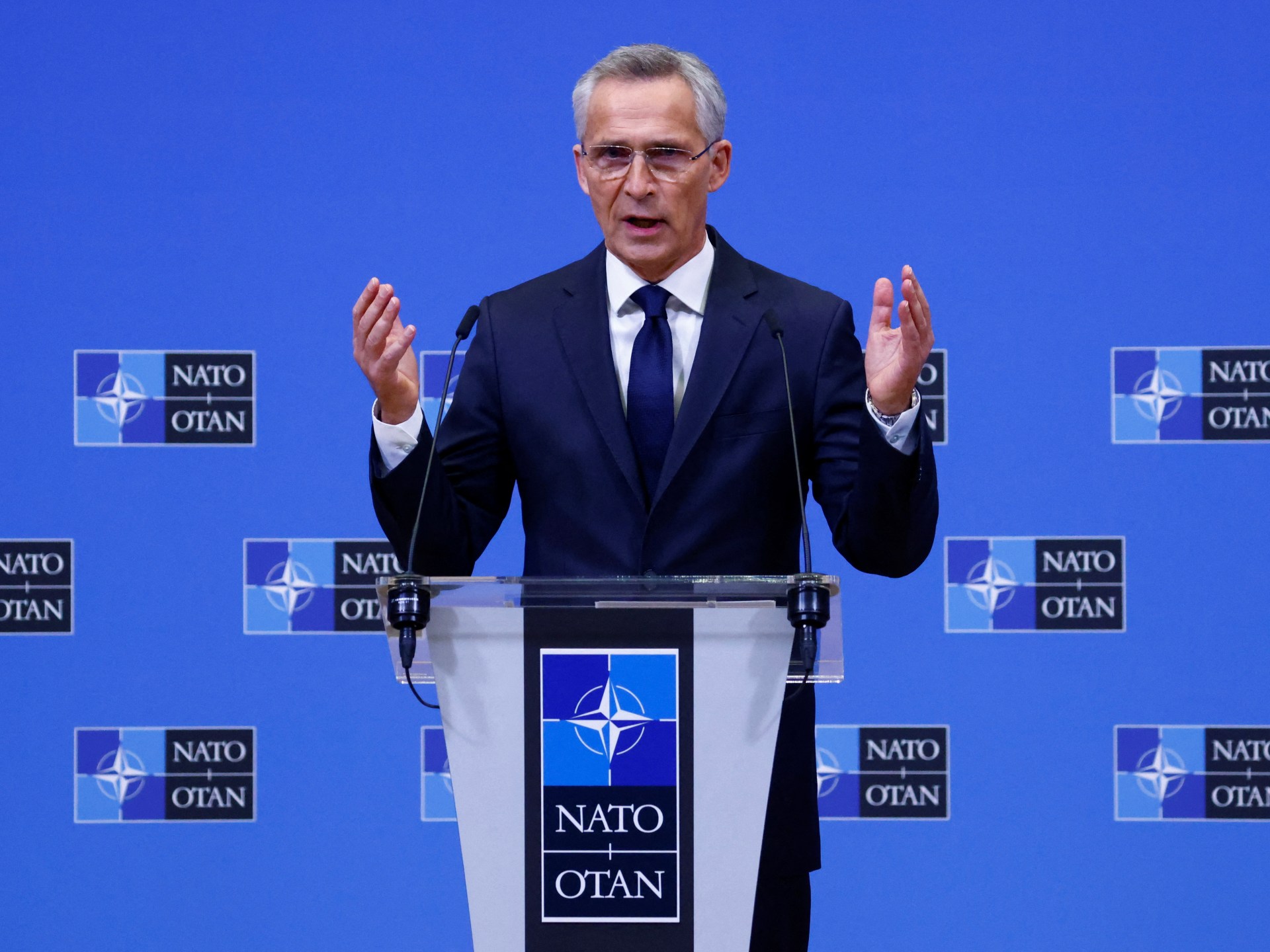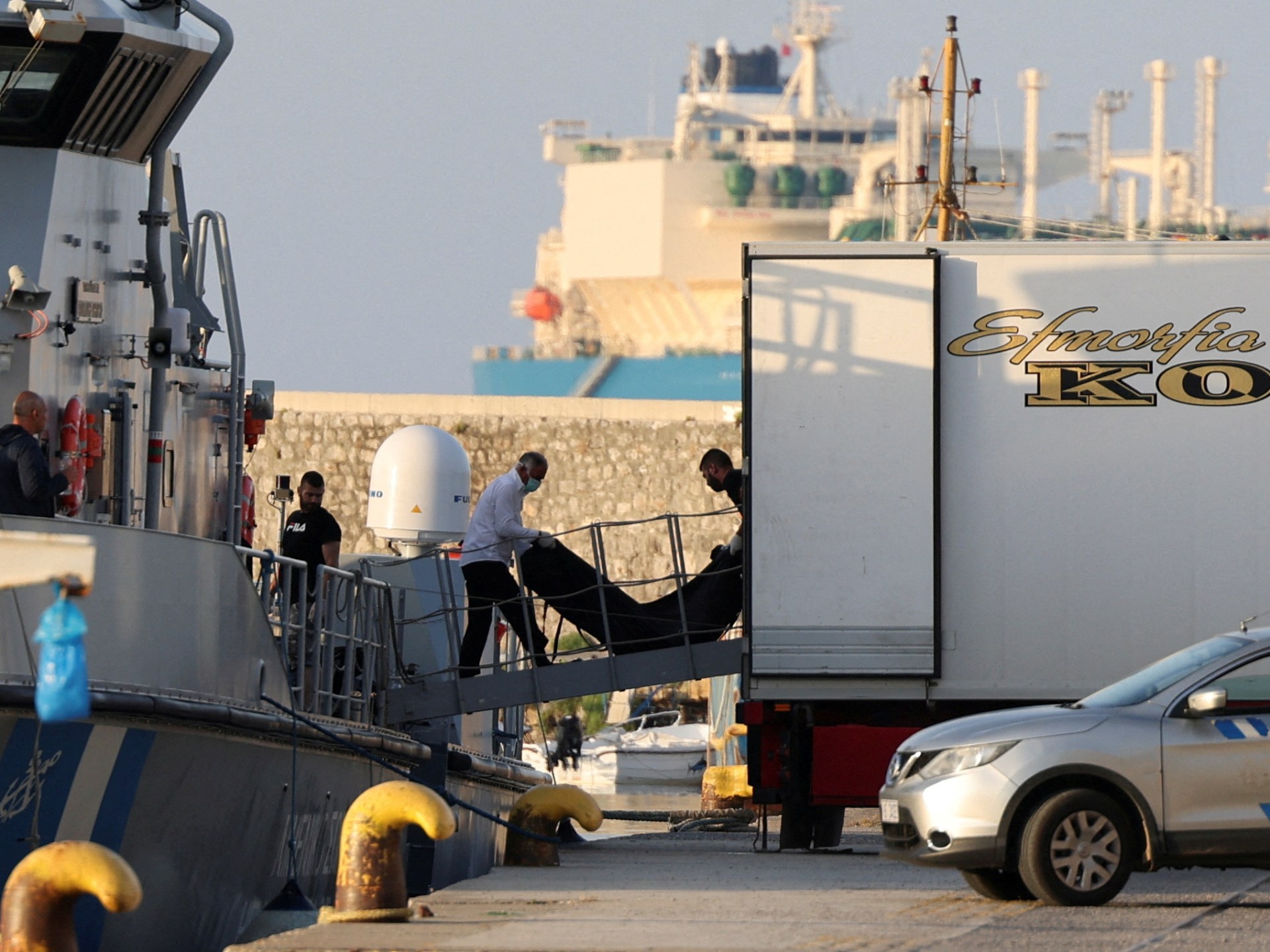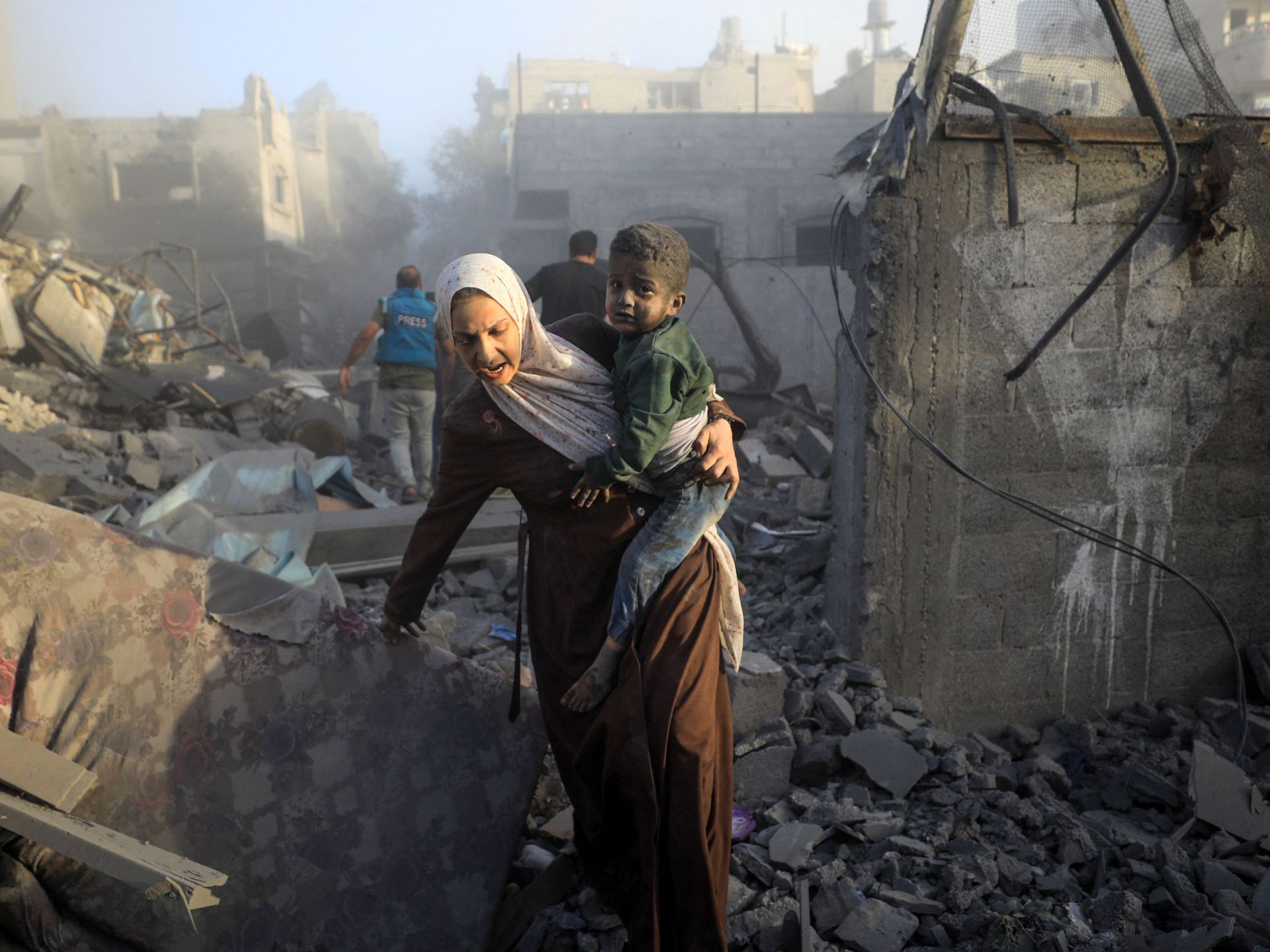NATO faces new challenge as war spills into Poland | NATO News
Russia’s war in Ukraine shook NATO territory this week, after a missile exploded in Poland near the Ukraine border, killing two people.
Immediately after the blast, Polish President Andrzej Duda said the explosive in the village of Przewodow was “most likely Russian-made” and highlighted that an investigation was still ongoing.
His statement sent shockwaves across Europe with NATO leaders offering their support to Poland and expressing their will to defend every inch of the largest military alliance’s territory.
On social media, some military analysts suggested that this was the moment NATO could either invoke Article 4 – a consultation between NATO countries when one member of the alliance feels threatened – or Article 5 – where an armed attack against one NATO member means every other member will consider this as violence against the entire alliance, and NATO can then take whatever action it deems fit to protect its territories.
Ukraine’s President Volodymyr Zelenskyy also called the explosion in Poland “a very significant escalation” adding that it was important to act since it was a Russian missile attack on collective security.
Amid these discussions of how NATO should react, the alliance’s Secretary-General Jens Stoltenberg maintained a cautious stance and instead called for a meeting with the alliance’s envoys, whilst waiting for more information from Poland.
A day after the attack, Polish President Duda said the missile was likely part of Ukraine’s defence mechanism and in turn did not invoke any NATO Article.
‘This is not Ukraine’s fault’
Stoltenberg then confirmed to reporters in Brussels that preliminary analysis had suggested that the incident was likely caused by a Ukrainian air defence missile fired to defend Ukrainian territory against Russian cruise missile attacks.
“But let me be clear, this is not Ukraine’s fault,” he said, stressing that Russia was still ultimately responsible for the war in Ukraine.
Jim Townsend, former US deputy assistant defence secretary for Europe and NATO under President Barack Obama, welcomed NATO’s approach.
“I think NATO did a great job of being very deliberative and cautious, by putting a story together based on facts. I think the US was like that too amid an environment where everything was very murky with a lot of conflicting information out there,” he told Al Jazeera.
“The conflicting information was mainly picked up by the press and it became a real frenzy,” he added.
Speaking from the G-20 Summit in Bali, Indonesia, US President Joe Biden said “it was unlikely” the missile was fired by Russia and his restraint till a proper investigation was carried out was praised by The Kremlin.

But the Kremlin accused some Western countries, especially Poland, of reacting “hysterically”.
“We have witnessed another hysterical, frenzied Russophobic reaction, which was not based on any real data,” Kremlin spokesman Dmitry Peskov told reporters a day after the explosion in Poland.
Harry Nedelcu, geopolitics director at Rasmussen Global leading its Ukraine Advisory Service, told Al Jazeera that the important question for countries to be asking after this incident is why this explosion happened in the first place.
“This incident occurred on a day when a string of Russian missiles hit several Ukrainian cities, with an aim to terrorise civilians and target power grids. Ukraine in turn used its air defence systems. So whichever way you look at it, context matters,” he said.
Townsend also pointed out that under the current scenario the West and NATO needs to focus on sending more air defence systems to Poland and countries bordering both Russia and Ukraine.
“They may need some more patriot systems or something along those lines because there could be other missiles down the road as the war continues. Next time it might be a real Russian missile and we need to be ready for it,” he said.
‘The alliance did a good job’
Speaking to reporters in Brussels, NATO chief Stoltenberg highlighted that this incident has proved the importance of strengthening the eastern flank further and supporting Ukraine.
“NATO has already been significantly increasing its presence in its eastern frontiers since Russia invaded Ukraine in February, with more ground troops, but also with significant substantial air and naval power. This has also increased our capabilities to monitor what’s going on between NATO Allies like Poland and Ukraine,” he said.
Stoltenberg also added that more NATO allies were focussing on sending air defence systems to Ukraine and the alliance is also sending drone systems to Ukraine to counter Russian missiles.
“At least in the winter weeks ahead, such air defence systems will help Ukraine because already we see that the country’s air defence is managing to target a lot of Russian missiles. So now it’s just about closing that gap and making sure that Russian missiles do not hit their targets,” Nedelcu added.
Meanwhile, as NATO nations continue to help Poland in investigating how this explosion occurred, Townsend hopes that a sort of “future action report” detailing the entire process of the investigation and the pathway ahead will be made available.
“Pretty early on, NATO nations decided to stay prudent and cautious every step of the way whilst gathering evidence. The alliance did a good job in handling this crisis but a lot of lessons are also being learned as NATO wades through handling this war and supporting Ukraine,” he told Al Jazeera.
“So a study to look at what NATO did right and where more work needs to be done to prevent future incidents like this could be useful,” he added.




